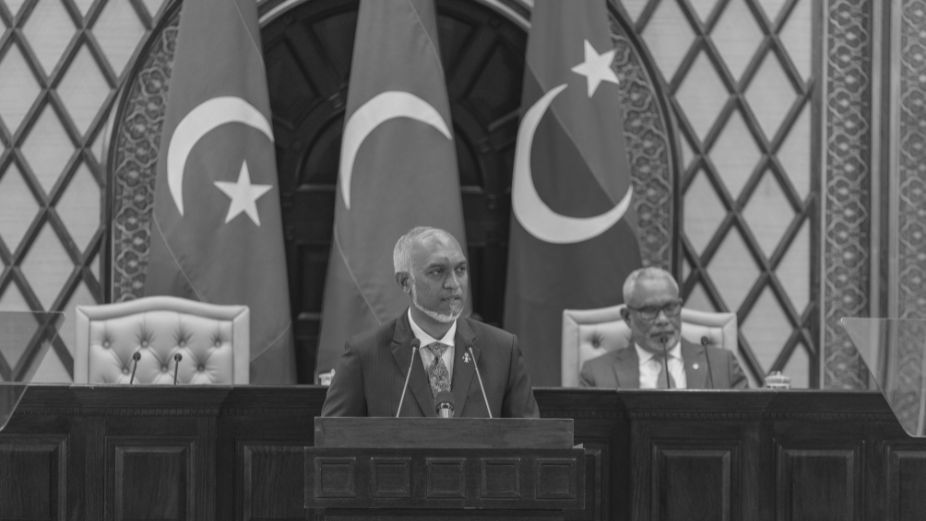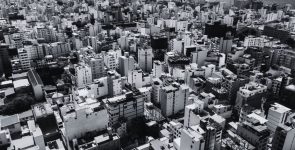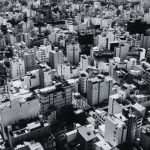
President Dr Mohamed Muizzu on Thursday ratified the controversial media regulation bill, replacing the country’s self-regulatory system with a state-controlled Maldives Media and Broadcasting Commission. In one decision, the Maldives moved further from the fragile experiment of democratic accountability and closer to a model of rule where dissent is not managed, but muted.
The path to ratification revealed as much as the law itself. The bill was rushed through Parliament during recess, in an extraordinary sitting. Opposition MPs who tried to object were expelled from the chamber. A petition signed by 151 journalists was brushed aside. Outside, reporters and civil society activists gathered in protest, only to be forcibly dispersed by police. Journalists were arrested and released, and threats circulated to family members of those who spoke out. What should have been a deliberative process was treated instead as a test of raw power, and the ruling party proved it has the numbers and the will to prevail.
Supporters argue that the law is regulatory rather than controlling, pointing to amendments that removed explicit powers to shut down media outlets. But regulation is not the same as independence. The new commission will be appointed and structured under government oversight, its authority defined by vague language open to political use. Even if it never formally closes a newsroom, the knowledge that it could will change how journalism is practiced. Self-censorship is not a bug of such systems. It is the intended feature.
This law is not just about journalists. It is about democracy itself. A press that fears reprisal is a press that asks fewer questions. And when questions stop being asked, corruption thrives in silence. Development projects proceed without scrutiny. Political deals are struck in backrooms rather than debated in public. Over time, power calcifies, and citizens lose not only their freedoms but also their economic prospects. Investors are wary of states where information is unreliable, where transparency is treated as a threat. Tourism, trade, and international cooperation all depend on the credibility of governance. In silencing the press, governments ultimately weaken themselves.
The Maldives is not the first country to attempt this. Around the world, we have seen how democracies erode: Hungary under Viktor Orbán, Turkiye under Recep Tayyip Erdoğan, Sri Lanka under successive regimes that blurred the line between government and media. The pattern is familiar: weaken the courts, control the press, consolidate the legislature, and ensure no countervailing institution can challenge the executive. What begins as an argument for “order” or “regulation” soon becomes a machinery of control.
Shakespeare captured this cycle in Julius Caesar. Brutus feared that once crowned, Caesar would forget the people, turning his back on the ladder that raised him. “The abuse of greatness is when it disjoins remorse from power,” he said. That line echoes here. In ratifying this bill, the president has chosen power without remorse, ambition without accountability.
The truth is that democracy rarely ends with a bang. It ends with procedure. Leaders say nothing essential has changed. Laws are passed. Committees meet. Votes are tallied. All the while, freedoms shrink. Each time a space closes, a court no longer independent, a press no longer free, the country takes another step into the dark. And the tragedy is that by the time the danger is fully visible, it is often too late.
The Maldives has lived through authoritarian cycles before. Each time, the lesson has been the same: control is not permanence. Rulers who try to silence dissent eventually fall to it. Citizens do not forget the value of their voice once it has been taken from them. Journalists adapt, resist, and find ways to tell the truth even when the cost is high. But the damage done in the meantime, to institutions, to the economy, to trust, is profound.
The question now is not whether the bill is law. It is what the country will do with this reality. Will citizens accept the slow suffocation of free speech as the cost of stability? Or will they, as in previous generations, insist that democracy requires more than ballots and majorities? The ratification of this law is a milestone, but it need not be the final word.
For now, though, the message is unmistakable. The lights are dimming. And unless the people insist otherwise, democracy in the Maldives will die in the dark.









